
Sexology is the scientific study of human sexuality, including human sexual interests, behaviors, and functions. The term sexology does not generally refer to the non-scientific study of sexuality, such as social criticism.

During both world wars, women were required to undertake new roles by their respective national war efforts. Women across the world experienced severe setbacks as well as considerable societal progress during this timeframe. The two World Wars hinged as much on industrial production as they did on battlefield clashes. With millions of men away fighting and with the inevitable casualties, there was a severe shortage of labour in a range of industries, from rural and farm work to urban office jobs. While some women managed to enter the traditionally male career paths, women, for the most part, were expected to be primarily involved in "duties at home" and "women's work," especially after the wars were over. On the other hand, the two wars also victimized women and subjected them to numerous incidences of sexual violence, abuse, and death.
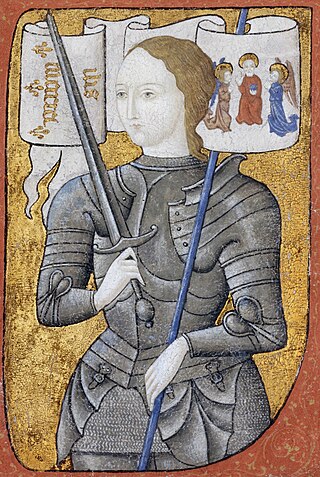
Joan is both a feminine form of the personal name John given to females in the Anglosphere; and the native masculine form of John in the Catalan-Valencian and Occitan languages. In both cases, the name is derived from the Greek via the Latin Ioannes and Ioanna, and is thus cognate with John and related to its many forms, including its derived feminine forms.

Maria Leontievna Bochkareva was a Russian soldier who fought in World War I and formed the 1st Russian Women's Battalion of Death. She was the first Russian woman to command a military unit.
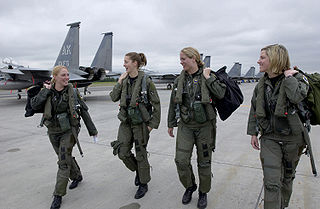
Women have been serving in the military for ages in both combat and non-combat roles. Their inclusion in combat missions has increased in recent times, with them often serving as pilots, mechanics, and infantry officers.

Amanda Lucy Foreman is a British/American biographer and historian. Her books include Georgiana, Duchess of Devonshire, A World on Fire, and The World Made by Women. She also wrote and starred in a four-part documentary regarding the role of women in society, entitled The Ascent of Woman. Currently, she is a columnist for The Wall Street Journal bi-weekly 'Historically Speaking' and an Honorary Research Senior Fellow in the History Department at the University of Liverpool.
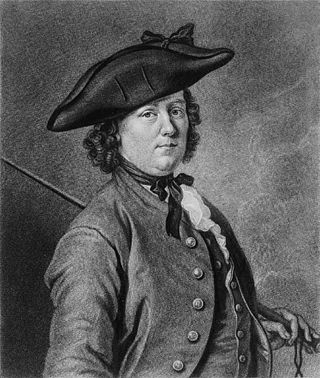
Many people have engaged in cross-dressing during wartime under various circumstances and for various motives. This has been especially true of women, whether while serving as a soldier in otherwise all-male armies, while protecting themselves or disguising their identity in dangerous circumstances, or for other purposes.

Mary, Lady Bankes was a Royalist who defended Corfe Castle from a three-year siege during the English Civil War from 1643 to 1645. She was married to Sir John Bankes, Lord Chief Justice of the Common Pleas and Attorney-General of King Charles I.
Women as theological figures have played a significant role in the development of various religions and religious hierarchies.

The presence of women in science spans the earliest times of the history of science wherein they have made significant contributions. Historians with an interest in gender and science have researched the scientific endeavors and accomplishments of women, the barriers they have faced, and the strategies implemented to have their work peer-reviewed and accepted in major scientific journals and other publications. The historical, critical, and sociological study of these issues has become an academic discipline in its own right.
Gender history is a sub-field of history and gender studies, which looks at the past from the perspective of gender. It is in many ways, an outgrowth of women's history. The discipline considers in what ways historical events and periodization impact women differently from men. For instance, in an influential article in 1977, "Did Women have a Renaissance?", Joan Kelly questioned whether the notion of a Renaissance was relevant to women. Gender historians are also interested in how gender difference has been perceived and configured at different times and places, usually with the assumption that such differences are socially constructed. These social constructions of gender throughout time are also represented as changes in the expected norms of behavior for those labeled male or female. Those who study gender history note these changes in norms and those performing them over time and interpret what those changes say about the larger social/cultural/political climate.
Women have made significant contributions to philosophy throughout the history of the discipline. Ancient examples include Maitreyi, Gargi Vachaknavi, Hipparchia of Maroneia and Arete of Cyrene. Some women philosophers were accepted during the medieval and modern eras, but none became part of the Western canon until the 20th and 21st century, when some sources indicate that Susanne Langer, G.E.M. Anscombe, Hannah Arendt and Simone de Beauvoir entered the canon.
Joanna Bourke, is a British historian and academic. She is professor of history at Birkbeck, University of London.
Irene Joan Thirsk, was a British economic and social historian, specialising in the history of agriculture. She was the leading British early modern agrarian historian of her era, as well as an important social and economic historian. Her work highlighted the regional differences in agricultural practices in England. She also had an interest in food history and local English history, in particular of Hadlow, Kent.
The historiography of the United States refers to the studies, sources, critical methods and interpretations used by scholars to study the history of the United States. While history examines the interplay of events in the past, historiography examines the secondary sources written by historians as books and articles, evaluates the primary sources they use, and provides a critical examination of the methodology of historical study.
The experiences of women in war have been diverse. Historically women have played more than major roles on the home front. Citing Queen Boudica, Queen Elizabeth I, Catherine de' Medici, Catherine the Great, Maria Theresa, Golda Meir, Indira Gandhi, Aba women and Margaret Thatcher, British historian Andrew Roberts concludes: "The witness of history is virtually uniform in the willingness of female decision makers to fight, once they have decided the causes just and/or necessary."
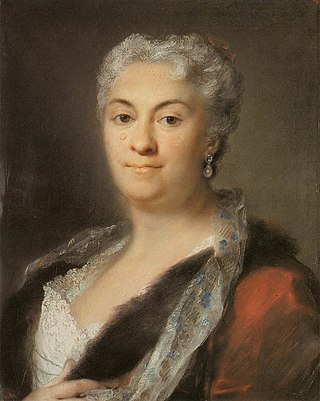
Women were professionally active in the academic discipline of art history in the nineteenth century and participated in the important shift early in the century that began involving an "emphatically corporeal visual subject", with Vernon Lee as a notable example. It is argued that in the twentieth century women art historians, by choosing to study women artists, "dramatically" "increased their visibility". It has been written that women artists pre-1974 were historically one of two groups; women art historians and authors who self-consciously address high school audiences through the publication of textbooks. The relative "newness" of this field of study for women, paired with the possibility of interdisciplinary focus, emphasizes the importance of visibility of all global women in the art history field.
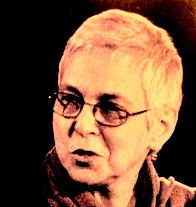
Joan Ringelheim was the Research Director of the Permanent Exhibition, Director of Education and Director of Oral History at the United States Holocaust Memorial Museum, where she oversaw its survivor testimony collection. She had worked on creating the museum's permanent exhibit. She would donate her collection which came, in part, from her organisation of the first conference about women, during the Holocaust.
Joan Hoff, also known as Joan Hoff-Wilson, is an American historian, research professor, editor, and author. She specializes in U.S. foreign policy, U.S. political history, biographies, women's history, and law history. Hoff is the former director of the Contemporary History Institute at Ohio University. She has worked at California State University, Sacramento; Arizona State University; Indiana University; and Montana State University. She retired in 2001 and lives between Big Sky, Montana and New York City, as of 2003.










